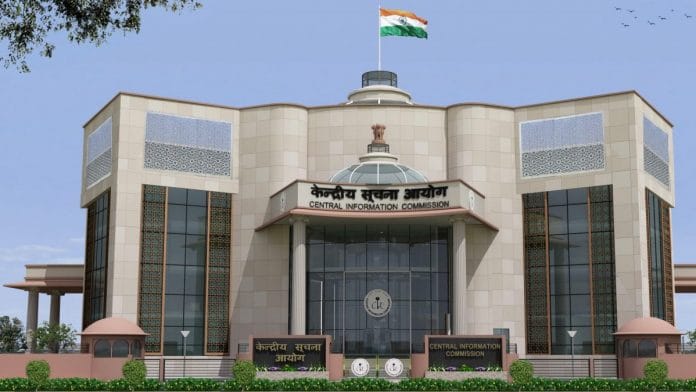Pendency of complaints and appeals is on the rise as Modi govt struggles to find candidates for vacancies dating back to 2016.
New Delhi: The Modi government doesn’t know by when it can fill up vacancies in the Central Information Commission (CIC), or so suggests an affidavit it has filed in the Supreme Court.
The government has said in the affidavit that the time schedule within which the vacancies will be filled “is difficult to be indicated”.
The CIC is four short of its sanctioned strength of 11 information commissioners, with the first vacancy arising in 2016. By November, four more commissioners — including the chief information commissioner — are set to retire, which will take the number of vacancies to eight.
In July this year, the Supreme Court had issued notice to the central and state governments after three transparency campaigners claimed in a public interest litigation that vacancies in information commissions were leading to increased pendency of complaints and appeals.
“The court had clearly directed the Centre to submit a timeline within which the vacancies will be filled up,” said Anjali Bhardwaj, one of the three petitioners. “Yet, their affidavit specifies nothing.”
Also read: Short of commissioners, information panel disposes of 34% fewer RTI complaints this fiscal
“This means that even as pendency of cases is on the rise, the Centre is not willing to commit to a date by when the vacancies will be filled up,” she added.
In its affidavit, filed Tuesday, the government also said that it had already issued an advertisement for the four vacant posts, and that the applications received were being duly considered.
The upcoming vacancies, it added, “would be taken subsequently according to the requirement/exigencies at the time”.
“The Centre has made it clear that the advertisement they published this year is only for the existing four vacancies, which means that we’re inevitably looking at a situation where there is no chief commissioner,” Bhardwaj said.
Rising backlog
ThePrint had earlier reported that the CIC disposed of 34 per cent fewer RTI complaints and final appeals in 2017-18 than in 2016-17.
In July this year, the government invited applications for the vacant posts. However, the court noted subsequently that the government had issued a similar advertisement in 2016 as well, which hadn’t resulted in any appointment.
To this, the Centre replied that the selection process was not pursued as certain amendments to the Right to Information (RTI) Act, from which the information commissions stem, were under consideration.
Also read: Modi govt’s plan to make changes to RTI Act an assault on transparency law: Activists
The controversial draft amendments to the RTI Act, which sought to empower the Centre and state governments to decide the salaries and tenures of information commissioners, were put on hold in July following a backlash from opposition parties and RTI activists. The Right to Information (Amendment) Bill, 2018, was supposed to be introduced in Parliament that month.
“If they are saying they weren’t filling up vacancies because of the amendment in 2016, that obviously means they have been contemplating the amendments for a long time,” Bhardwaj said.
“What is even more worrying is that, even in this advertisement, they haven’t specified the salary of the commissioners, which means they are still thinking of bringing in the amendment,” she added.






